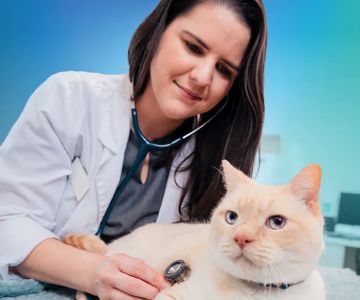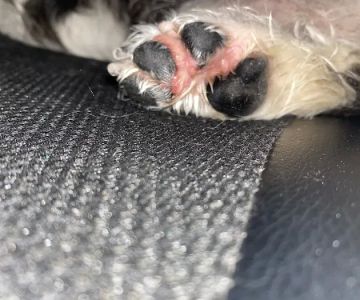What Classes Do You Take for Veterinarian School?
Becoming a veterinarian is a rewarding yet challenging career path that requires extensive education and training. If you're considering this profession, you're likely wondering about the classes you'll need to take to get there. In this article, we will dive into the various classes you will encounter on your journey to becoming a veterinarian, the skills you'll develop, and what you can expect throughout the educational process. Understanding what to expect academically will help you prepare for the rigorous yet fulfilling road ahead.
1. Core Courses: Building the Foundation for Veterinary Medicine
The journey to becoming a veterinarian begins with a strong foundation in core science courses. These foundational courses are essential for understanding the biology and physiology of animals, which are crucial to diagnosing and treating their health conditions. Among the first classes you'll take are:
- Biology: A deep understanding of biology is key for any aspiring veterinarian. You'll study the cellular processes that keep animals alive, how their bodies function, and how diseases develop and spread.
- Chemistry: Chemistry is fundamental to understanding the biochemical processes in animals' bodies. You'll take general chemistry and organic chemistry to build a solid foundation for later courses in pharmacology and biochemistry.
- Physics: Physics helps veterinarians understand how forces and energy affect animals' movements and health. It also plays a role in the use of diagnostic imaging equipment, such as X-rays and ultrasounds.
These courses are vital for building the critical thinking skills needed in veterinary medicine, setting the stage for more specialized courses later on.
2. Specialized Veterinary Courses: Diving Deeper into Animal Health
As you progress in your veterinary studies, you will begin to take more specialized classes that focus on different aspects of animal health and medicine. Some of the key courses include:
- Animal Anatomy and Physiology: Understanding how animals' bodies work is essential for diagnosing diseases and providing treatment. This course dives deep into the structure and function of animals' organs and systems.
- Pathology: Pathology is the study of disease, and in this course, you'll learn about the various diseases that affect animals, how they are diagnosed, and the treatments that can be applied.
- Pharmacology: Pharmacology is the study of drugs and their effects on living organisms. As a veterinarian, you'll need to know how different medications affect animals' bodies and how to prescribe them safely.
These specialized courses will help you understand the complexities of animal health, preparing you for real-world clinical experiences and eventually veterinary practice.
3. Clinical and Practical Skills: Preparing for Hands-On Work
Veterinary school is not just about classroom learning—it also includes plenty of hands-on experience. During your education, you will spend time in clinical settings, where you'll apply what you've learned in real-world situations. Some of the clinical skills courses you'll take include:
- Veterinary Surgery: This course teaches you the basics of performing surgeries on animals, including techniques for anesthesia, wound care, and post-operative recovery.
- Emergency Medicine: You'll learn how to handle animal emergencies, such as trauma, poisoning, and severe infections. This course helps prepare you for the unpredictable nature of veterinary practice.
- Animal Behavior: Understanding animal behavior is crucial for interacting with patients and their owners. You'll learn how to assess behavior and develop strategies for managing both common and complex issues.
These courses ensure that you're not only learning theory but also gaining practical skills that will serve you throughout your veterinary career.
4. Elective Courses: Tailoring Your Education to Your Interests
While the core and specialized courses are essential, most veterinary schools also offer a range of electives that allow you to explore areas of personal interest. These electives help you specialize in certain fields of veterinary medicine, such as:
- Exotic Animal Medicine: If you’re interested in treating non-traditional pets, such as birds, reptiles, and small mammals, this elective will give you the specialized knowledge you need.
- Veterinary Dentistry: This elective focuses on dental care for animals, an often-overlooked area of veterinary medicine. You'll learn how to perform cleanings, extractions, and other dental procedures.
- Public Health: For those interested in zoonotic diseases (diseases that can transfer from animals to humans), this course covers epidemiology, prevention, and control strategies.
Taking these electives allows you to gain expertise in specific areas, which can be a key factor when choosing your area of specialization in veterinary practice.
5. The Importance of Internships and Clinical Rotations
One of the most exciting and rewarding parts of veterinary school is the opportunity to participate in internships and clinical rotations. These real-world experiences are integral to your education and help you apply everything you’ve learned in the classroom to actual patient care. Internships and rotations often occur during your final years of veterinary school, and they provide the chance to work closely with experienced veterinarians in specialized fields, such as:
- Shelter Medicine: Working with animals in shelters teaches you how to address a wide variety of medical conditions under challenging conditions.
- Farm Animal Care: If you're interested in large animals, you may choose a rotation that allows you to work with farm animals like cows, horses, and pigs.
- Specialty Practices: Some rotations focus on specialty practices, such as cardiology, oncology, and dermatology, giving you deeper insights into specific areas of veterinary care.
These hands-on experiences are critical for developing the practical skills and confidence needed to become a successful veterinarian.
6. Licensing and Continuing Education
After completing your veterinary degree, you'll need to pass licensing exams to practice legally. In the United States, this includes passing the North American Veterinary Licensing Examination (NAVLE). However, your education doesn’t stop after you graduate. Veterinarians are required to continue learning throughout their careers to stay up-to-date with the latest medical advancements and techniques.
Continuing education is essential for maintaining licensure, and many veterinarians choose to specialize further through internships, residencies, or certifications in specific fields. The veterinary field is constantly evolving, so lifelong learning is a crucial part of being a successful professional.
SEO Title: What Classes Do You Take for Veterinarian School? The Complete Guide SEO Keywords: veterinary school, veterinarian classes, veterinary education, animal medicine courses, veterinary training SEO Description: Discover the classes you’ll take in veterinary school, including core courses, clinical training, and electives. Learn what to expect on your path to becoming a veterinarian.










